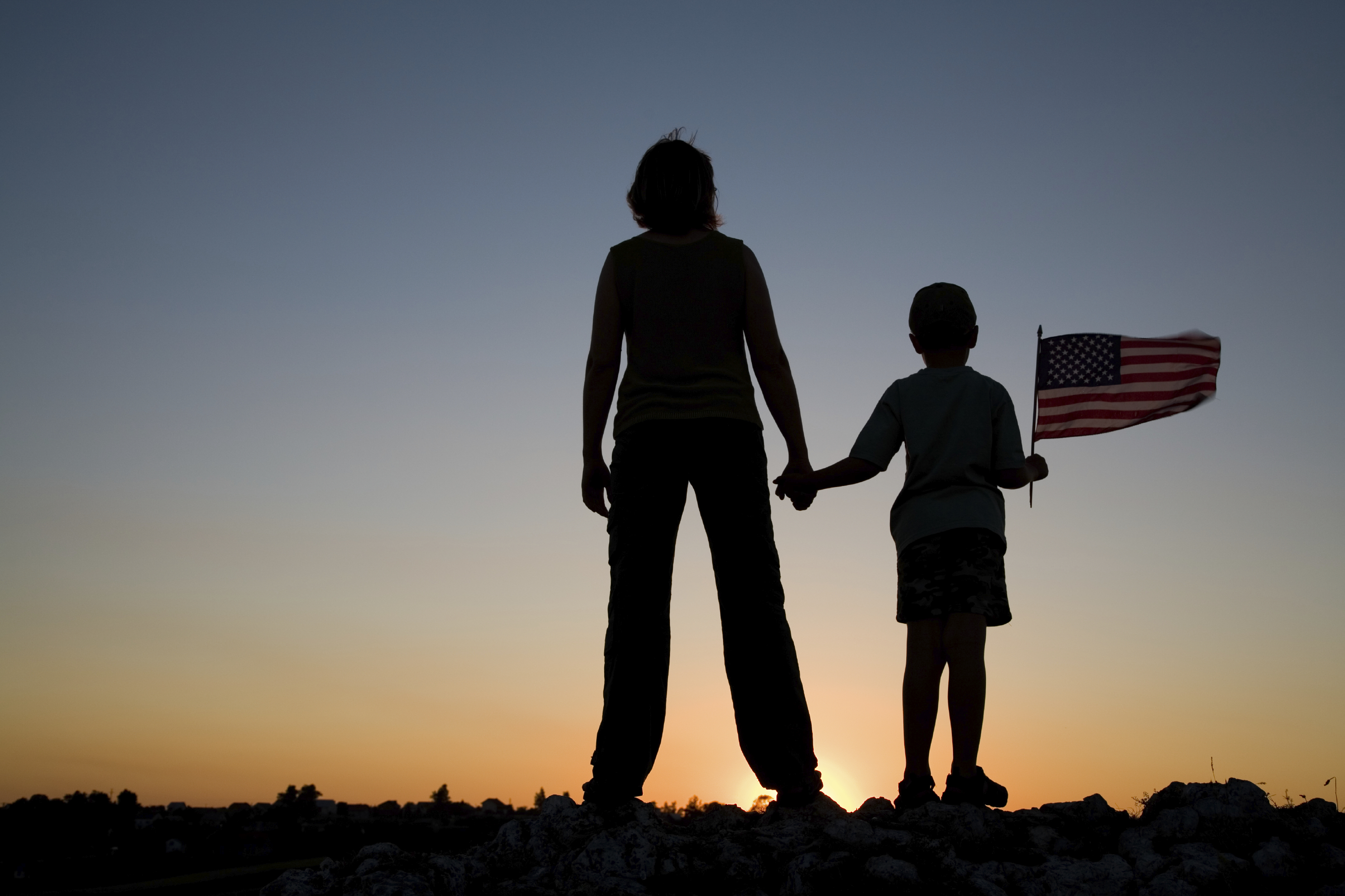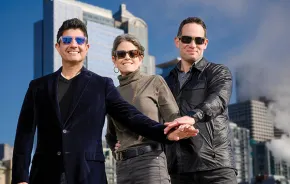 The year of 2011 was particularly rough for me. As a single mom of four boys working five different jobs just trying to cobble together a living, I couldn’t remember ever not being tired. On top of that, a promising relationship I had with a handsome doctor had just ended, I had to turn down an acceptance to graduate school because I couldn’t bring myself to add to my already hefty pile of student debt, and it seemed everything in and around my house started breaking at the same time.
The year of 2011 was particularly rough for me. As a single mom of four boys working five different jobs just trying to cobble together a living, I couldn’t remember ever not being tired. On top of that, a promising relationship I had with a handsome doctor had just ended, I had to turn down an acceptance to graduate school because I couldn’t bring myself to add to my already hefty pile of student debt, and it seemed everything in and around my house started breaking at the same time.
I was trying to be a good mom, a good employee, a good friend, but I was completely spent — mentally, physically, emotionally and spiritually. Of all the ways I could have chosen to replenish my stores, I decided to volunteer at the Veteran’s Retirement Home every Thursday during my lunch hour. I told myself, Service is a good way to forget your own problems, right?
Three old men — all World War II veterans — took to me right away, calling me “Red.” One week I wore a hat, a short brimmed '20s looking thing with a tuft of feathers. It made them all so practically giddy that I started wearing a hat every Thursday — usually a dress, too.
I got to know them all quickly: Gil loved jazz, especially Thelonius Monk. He would beg me to stream Blue Monk Solo on my iPhone. He called it my “music box.” He told me he had once helped write a Christmas song that Bob Hope was going to sing on television, but he never sang it and he never got paid for it, said his son still had the sheet music. His son — the attorney in Washington state — whom he hadn’t heard from in about 10 years but expected to any day, which explained why he always had on one of five or six worn looking UW sweatshirts.
There was Geoffrey Irons, who looked like a movie star, still tall and squared off for a man his age with wavy silver hair and intense eyes. He’d wear pressed khakis, a dress shirt, and a Lands' End fleece vest zipped halfway up. He had dementia and thought that he, too, was a volunteer at the home, not a resident. They even made him a volunteer name tag. He’d insisted. He would work in the small library with me, removing all the books from the shelves and telling me where to put them according to genre. When we would finish — the books almost always having gone back to the same place we took them off of — he would reach into his back pocket and pull out his wallet, asking how much he owed me. There was no money in there. “Nothing,” I’d say, and pat his arm, but I always appreciated that he thought my work was worth paying for.
There was also Edward. He had a hard time feeding himself, often wearing a bib, with a look on his face that said he was trying to ignore the fact that he was wearing a bib and had someone else feeding him. He held his right hand against his chest, fingers curled in on themselves, like a hawk’s talon. I asked one of the orderlies what happened to him, and he told me to ask him myself.
“Sometimes he’ll tell you the story, sometimes he won’t.”
The first time I asked, Edward told me to mind my own business.
But the next week, as I was cueing up Blue Monk Solo for Gil, Edward suddenly said, “Damned Nazis broke my hand every day for three years! Every day they’d haul me into this little room that smelled like rubbin’ alcohol and sausage and tell me to tell them something. For the first month, I had some things to tell them, minor details, some names. I was only a lieutenant. Then I ran out of stuff. Then I ran out of stuff to make up. And so every day that I had nothing to tell, they’d break my hand, one finger at a time or all of them at once by smashing an artillery box on them. One guy liked to throw me on the floor and stomp on my hand with his boot. It was breaks on top of breaks until my hand felt just like a bag of flour at the end of my arm and it didn’t even hurt any more. They never hit me anywhere else, not even my left hand. Once the war was over, I’m not sure why they didn’t amputate since it never worked right after, but they didn’t. I learned to do everything one-handed till the arthritis got too bad. Now don’t ask again.”
 I didn’t. But, with that story I came to understand some things about life — mine especially. How with age, wisdom, too much experience, comes not more empathy or sympathy, but sometimes less. How when elderly people nod, eyes distant, as you make small talk with them, it is not because they don’t understand, not because you are talking too fast or using terminology they can’t grasp, maybe not even because they have dementia — but because sometimes they understand and know it all and don’t care anymore.
I didn’t. But, with that story I came to understand some things about life — mine especially. How with age, wisdom, too much experience, comes not more empathy or sympathy, but sometimes less. How when elderly people nod, eyes distant, as you make small talk with them, it is not because they don’t understand, not because you are talking too fast or using terminology they can’t grasp, maybe not even because they have dementia — but because sometimes they understand and know it all and don’t care anymore.
There is nothing in your life that you can produce as a trial that they haven’t likely endured and more. You can’t afford to shop at Whole Foods? Try eating nothing but lard sandwiches for a decade. Your kids are giving you problems? Try having one of them leave you in a nursing home and never contact you again because you can’t give them anything anymore. You hurt from a breakup with your boyfriend? Try having your wife of fifty years suffer a slow, painful death of cancer and take her last breath in your arms.
You worry about paying off your student loan? Try having the “damned Nazis” break your hand every day for three years. And then grow old and slow of speech and be considered worthless and tucked away where you are kept inside so long that the sun hurts your eyes when someone finally walks outside with you. You know trials will come and pass and come again and in the end, for whatever you’ve achieved, or haven’t, you still end up only celebrated for your earlier years at best. So, to even get a nod of recognition is probably the best they can muster.
Since that time, I can’t tell if I am anxiously waiting to get to that point in my life where I can just shut off, have someone else be paid for my care — like a child, to have my hair brushed, to be fed and dressed and wiped and placed in a bed I can’t fall out of — or if I am terrified of it.
But I do know that in the faces of my four boys — clad in their Boy Scout uniforms — happy about fireworks, happy about America, happy about grilled hamburgers and hunks of watermelon and life in general, it feels like there is still hope. It feels like what Gil and Geoffery and Edward fought for continues: The chance for their children and grandchildren and great-grandchildren and all Americans to live free and abundant lives, lives devoid of the fear they’d known.
I will always make my boys aware of those men, men not so different from the men they will grow into one day, who made such abundance and safety possible. I will teach them to look those men in the face and say, “Thank You.”
Editor's note: Some names have been changed to protect the privacy of individuals.











